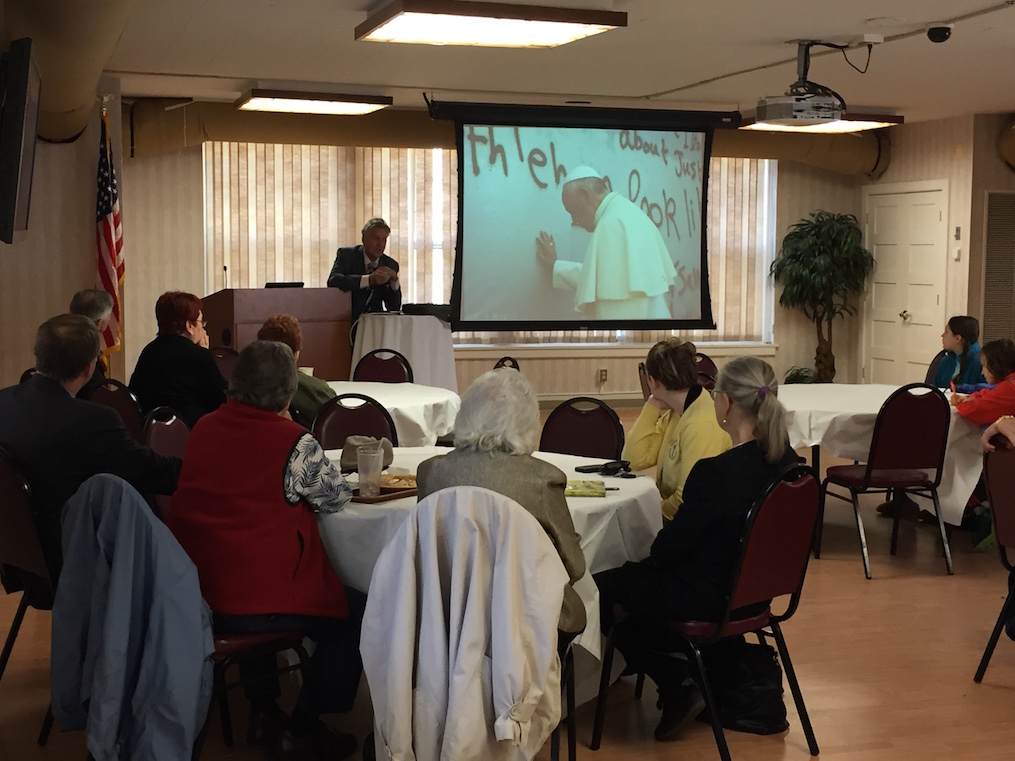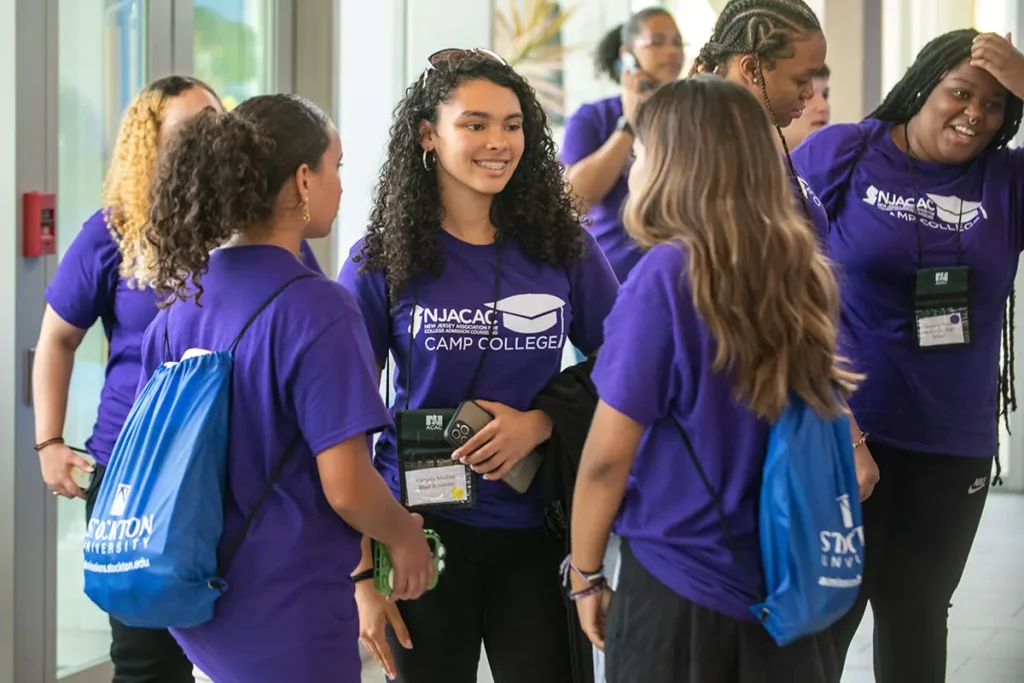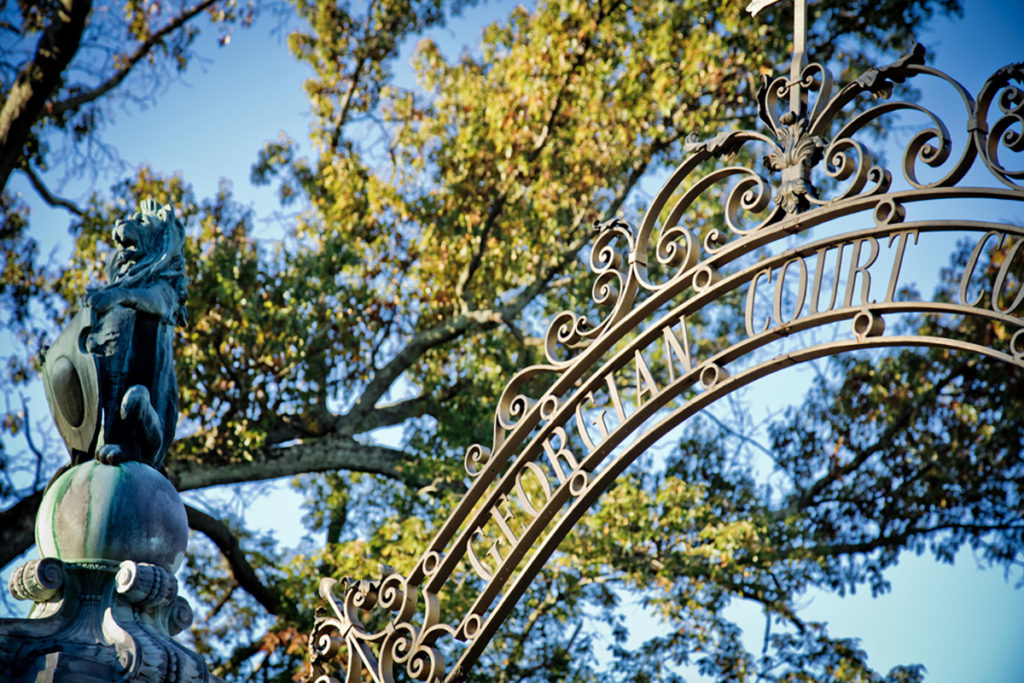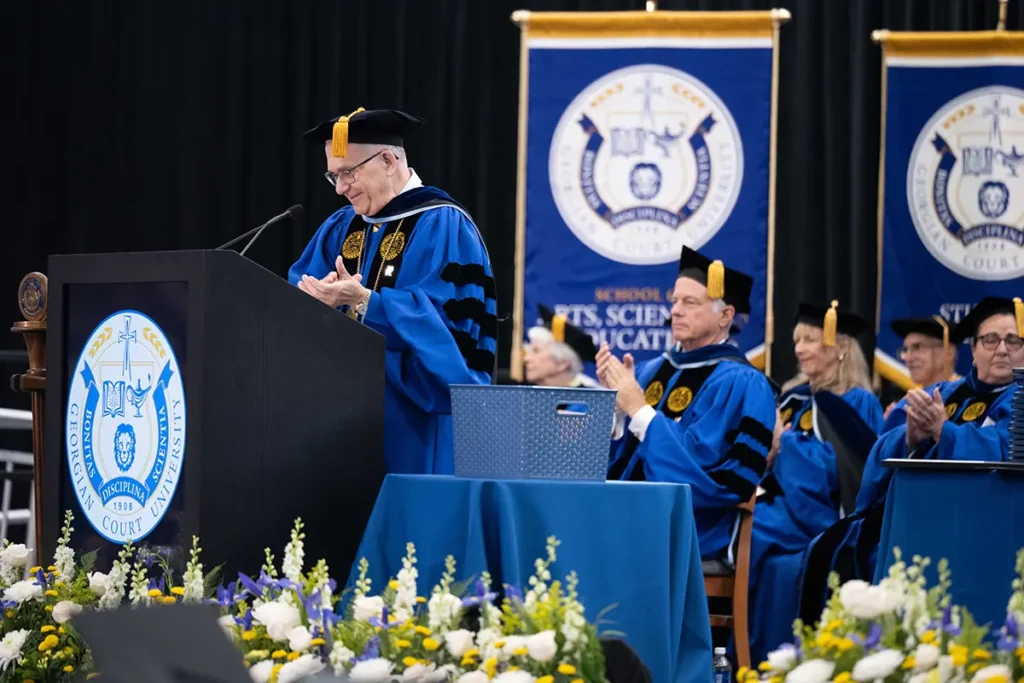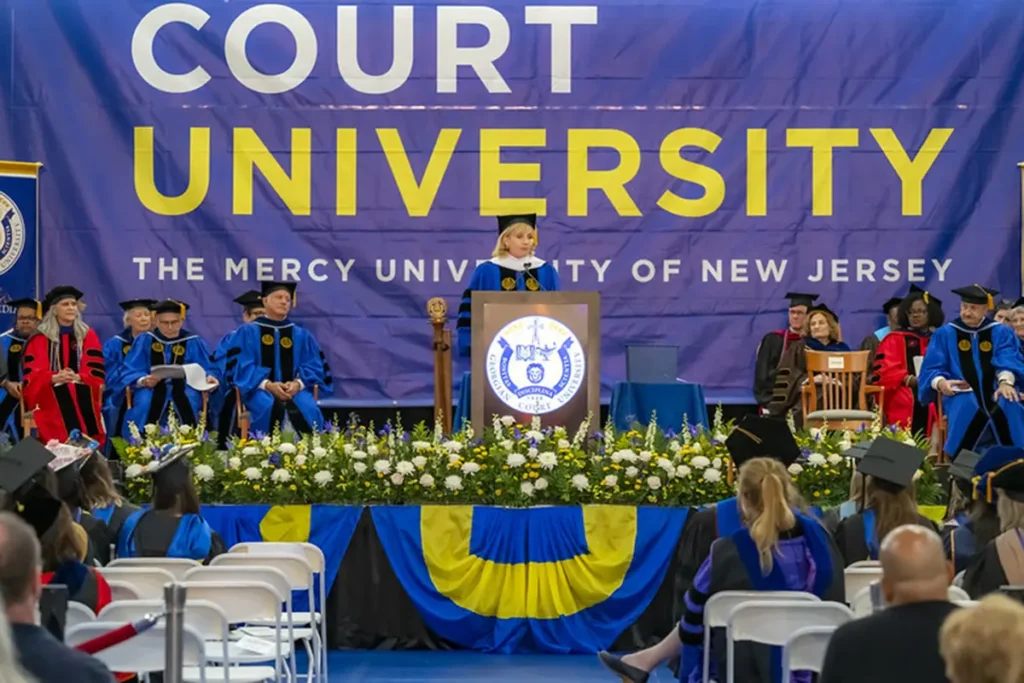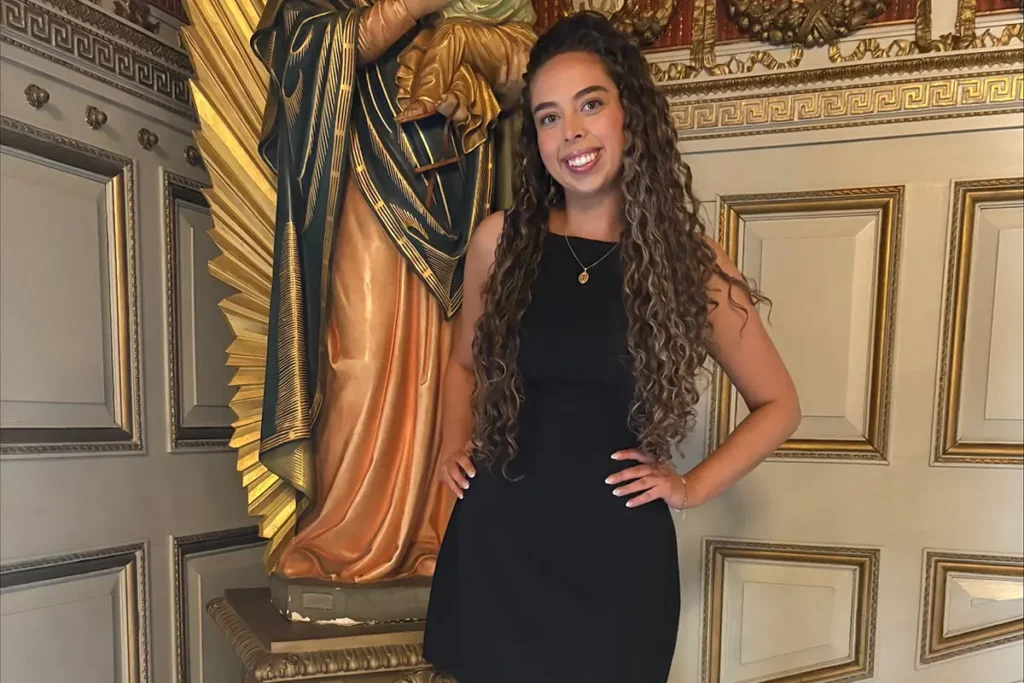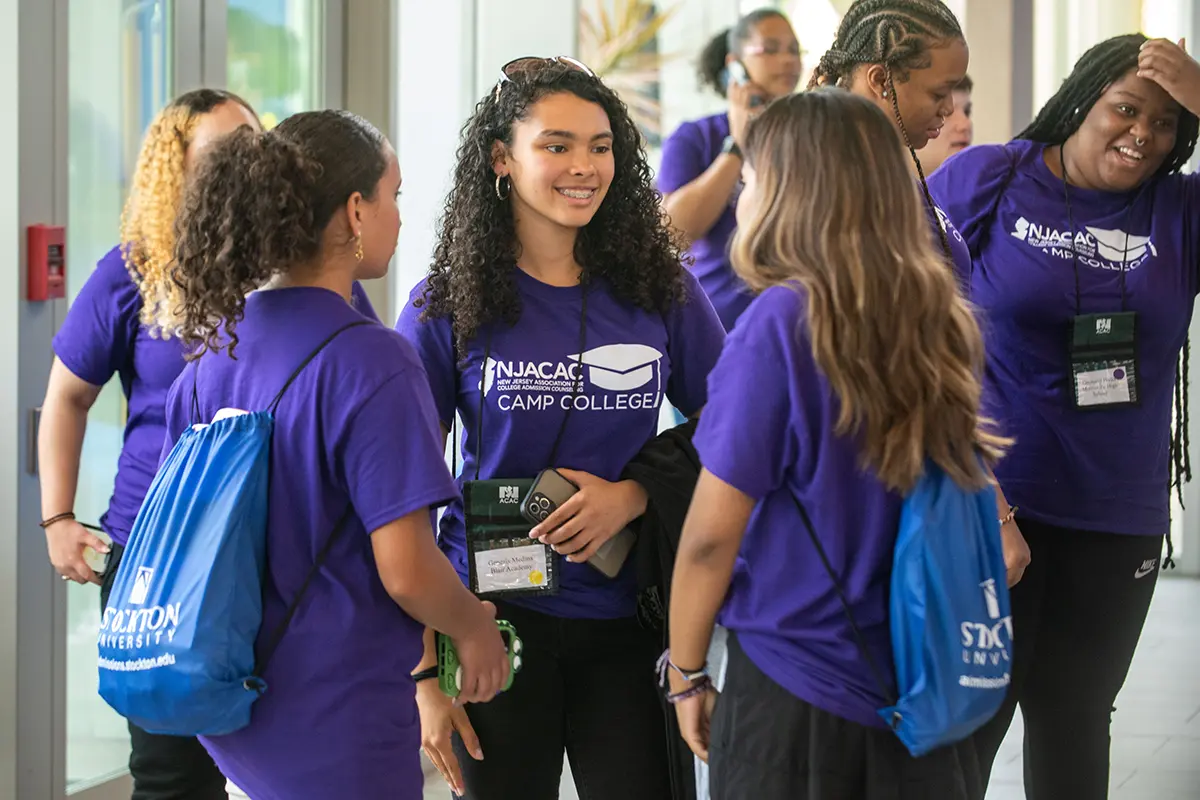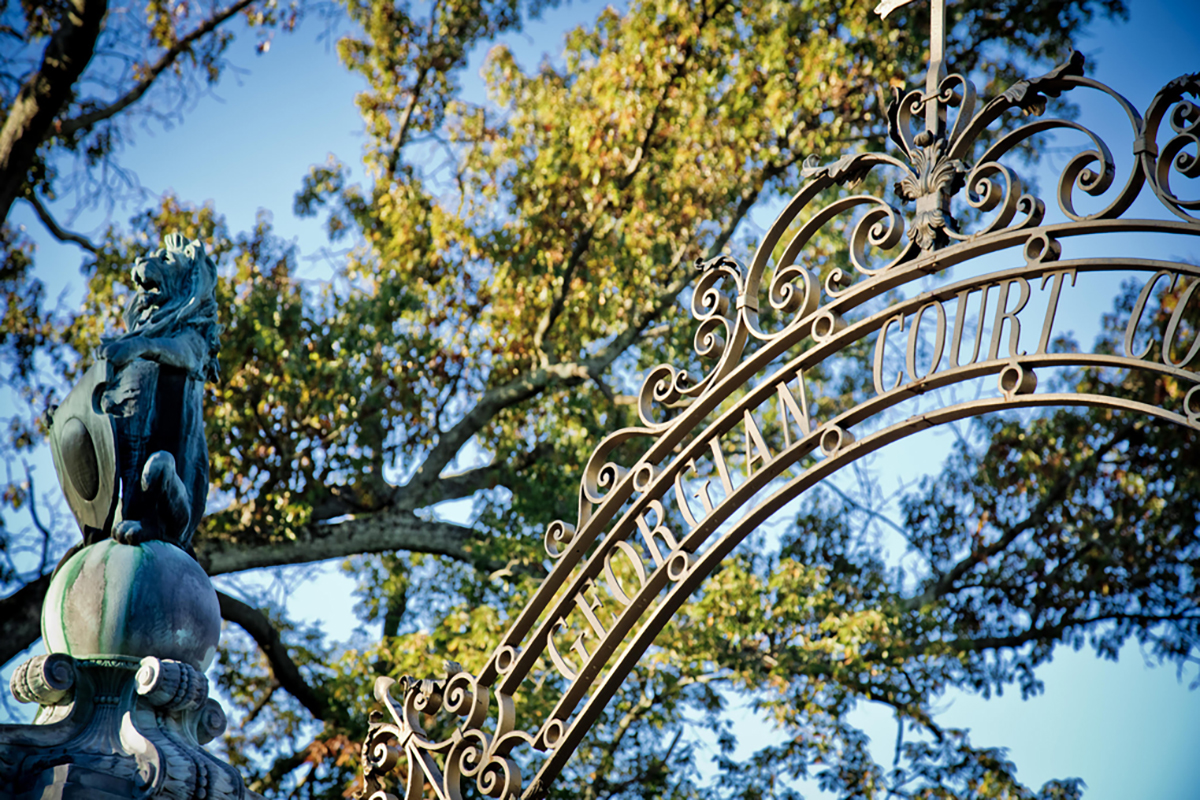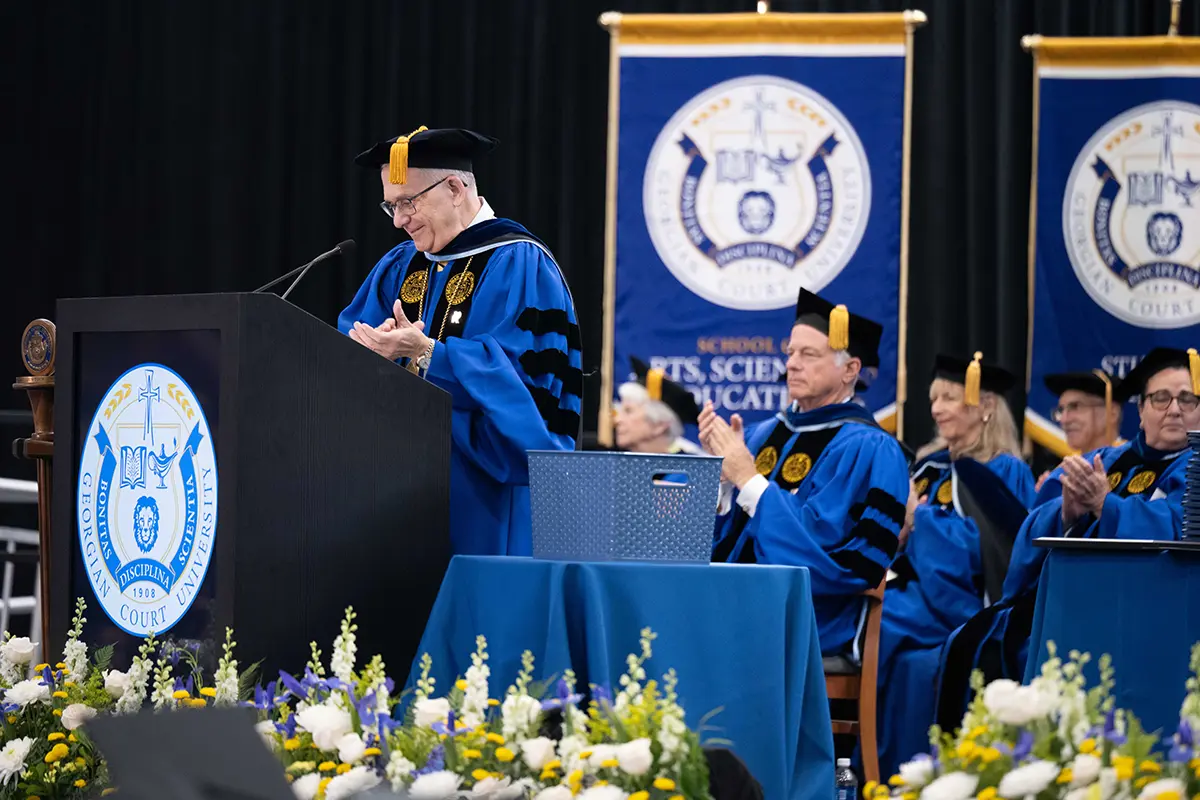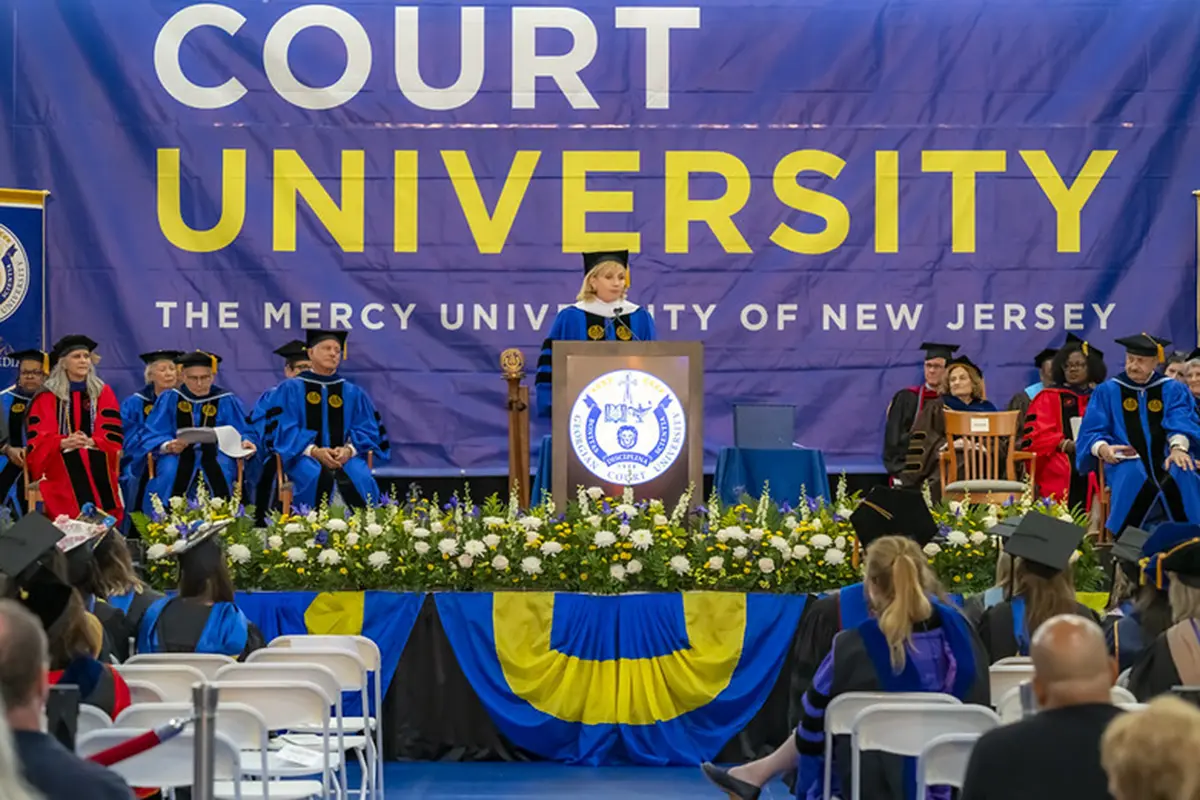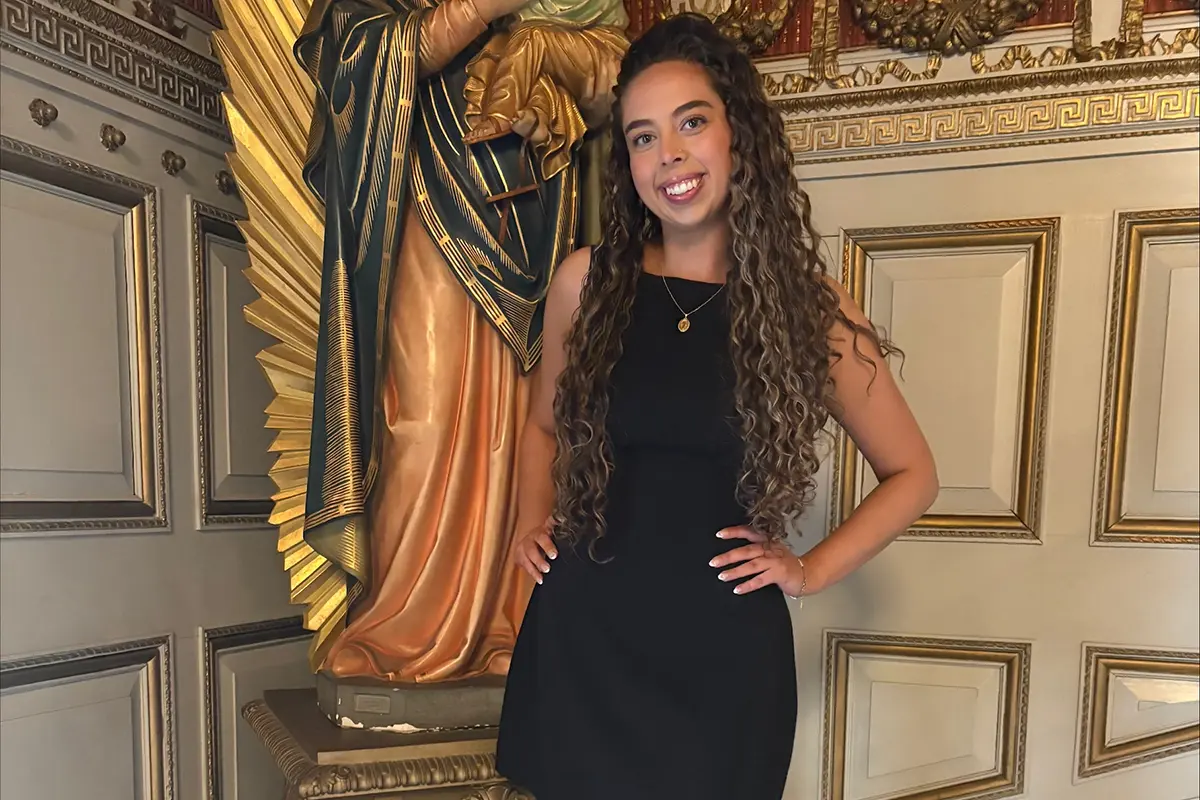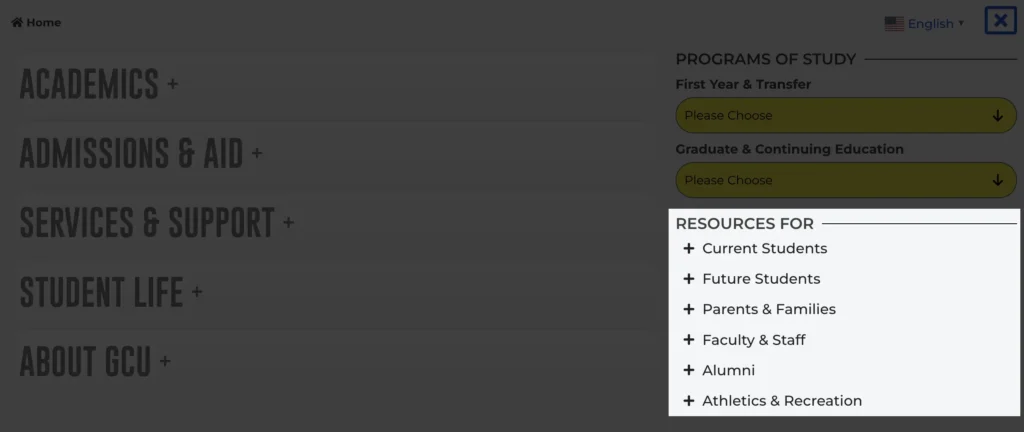Renowned International Correspondent Shares Insight on Pope Francis at GCU
On April 8, Pope Francis issued a call heard around the world for the Church to be more welcoming and less judgmental in family matters.
Just four days later, leading papal expert David Willey brought his wide-ranging observations of the man behind those sentiments to Georgian Court University.
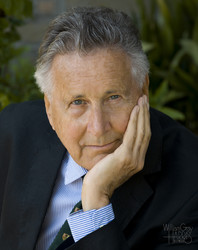
“He’s a man of the people,” Mr. Willey said while sharing a photo of the pope serving the poor dinner in Buenos Aires, a “megacity of 11 million people which I can only compare to cities in China. As Archbishop Jorge Mario Bergoglio of Argentina, he lived next door to some of the world’s worst slums—the villas miserias. This is the background of Bergoglio.”
Mr. Willey, who is on a nationwide tour promoting his latest book, The Promise of Francis: The Man, the Pope, and the Challenge of Change, has reported from Rome since 1971 and covered five pontificates. He is the British Broadcasting Company’s longest-serving foreign correspondent.
His book explores the religious and personal background of Pope Francis and the probability that he will be able to fulfill the promises of reform he conveyed during his first two years in the papacy.
International Expertise and Community Resource
GCU President Joseph R. Marbach, Ph.D., and Evelyn Saul Quinn, vice president for mission integration, said they were struck by the timing of the author’s appearance in relation to the worldwide interest generated by the pope’s document on the family, Amoris Laetitia (“The Joy of Love”).
Dr. Marbach said bringing in an expert of Mr. Willey’s caliber to speak on Pope Francis mirrors the goal that he, as GCU’s new president, set upon taking office: to establish GCU as the Catholic university in Central and South New Jersey.
With its location in the heart of New Jersey, Ms. Quinn said, Georgian Court is well situated to be a central resource for the faithful of the Diocese of Trenton. The speaker’s insightful discourse, she added, was a perfect example of GCU as a strong community resource.
“He presented the human face of the papacy” to the audience, she said, “and brought a real sense of what’s happening now” in the Church.
The expert offered his thoughts on whether Pope Francis would push for even more significant changes, “more than just changing the tempo,” as one member of the audience suggested.
“That depends on the time available to him,” Mr. Willey said, noting that the change Francis has in mind is going to take time. “What he is trying to do is to get people to react in a different way, to stop worrying so much about rules,” and to think more about service and care.
Preaching, Teaching, and More
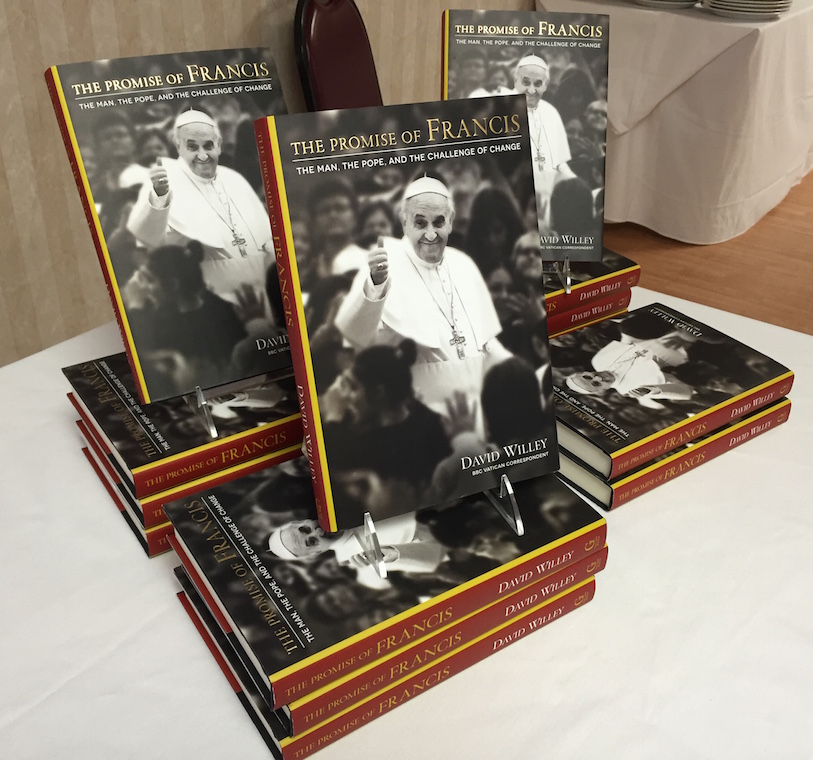
The veteran journalist also reflected on the pope’s historic visit to New York, Philadelphia, and Washington, D.C., in 2015.
“He had never been to the United States before. The visit fit in with his agenda. He was able to make speeches about climate change and focus attention on his view of the Church as a field hospital that binds up wounds,” Mr. Willey explained.
The relaxed and personal exchange in GCU’s North Dining Room lasted almost two hours. During the presentation, which was sponsored by the Office of Mission Integration, Mr. Willey captivated the audience of 72 GCU community members, Mercy Associates, and alumni by sharing insights honed over 45 years spent covering five popes—Paul VI, John Paul I, St. John Paul II, Benedict XVI, and Francis.
As the BBC’s longest-serving foreign correspondent, he also broadcasts about the Vatican for NPR, CBC, ABC in Australia, Deutsche Welle Radio and TV in Berlin, and Swiss and Austrian Radio. His articles have appeared in The Tablet, The Observer (London), and the Sunday Telegraph. In 200, he was awarded the Order of the British Empire (OBE) by Queen Elizabeth II for his services to broadcast journalism.
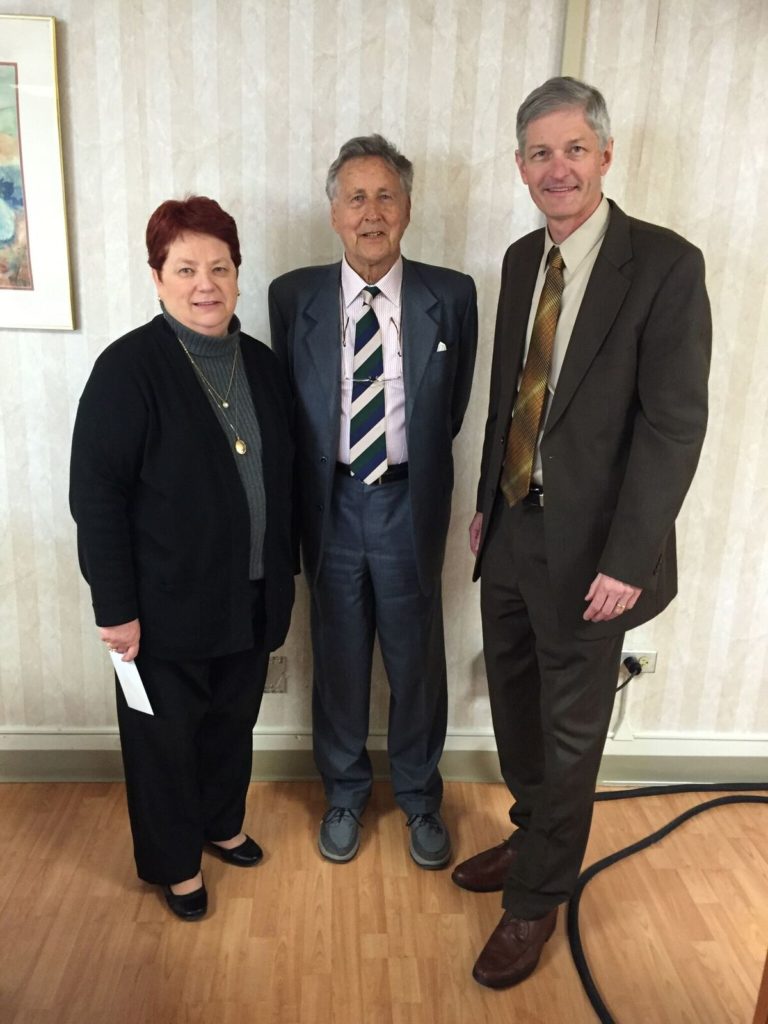
With an assist from a riveting digital presentation that included scores of candid and ceremonial photos, he painted a portrait of Pope Francis that morphs from the Argentina of his youth and middle age to Rome, where he still craves simplicity.
It is a portrait forged by family ties, difficulties with the Argentinian government and—most especially—his experiences with the poor and suffering. The central image that emerges from this montage, Mr. Willey said, is Francis’ vision of the Church as a “field hospital” focused on healing, not only humanity, but the global environment as well.
The pope’s style of educating people worldwide continues to prove popular, he added.
“(Francis) has many forms of teaching—from the homily he preaches every morning at Mass” in his residence to making good use of social media, Mr. Willey said. “He has been kept up to scratch on social media, and more people read his tweets than tweets from pop stars.”
And yet there are criticisms of Pope Francis, including the fact that the role of women has not changed.
Holly Caldes, a GCU math major with an interest in the Vatican “and especially this pope,” listened intently. “My main source of news is the BBC,” she said. When she realized she had the time to hear the presentation, the Mercy Associate seized the opportunity.
“When I was younger, I was not very religious. But my interest has increased, and this was great,” she said. “He shared great background about Pope Francis and the contemporary papacy in general. I feel more informed after attending the program. I was able to pick up pieces of information, and that’s what matters.”
Story contributed by Lois Rogers; photos by GCU business major Deanna Brigante ’17. Portrait of David Willey by William Gray Harris for Simon & Schuster, where an audio excerpt from his book can be heard.

